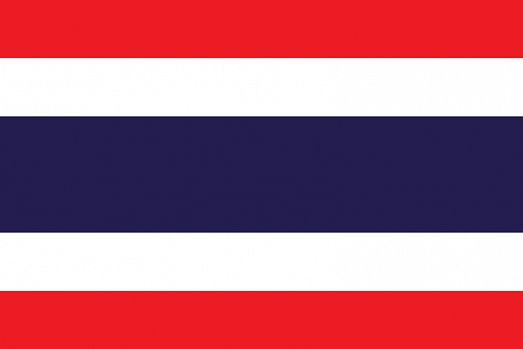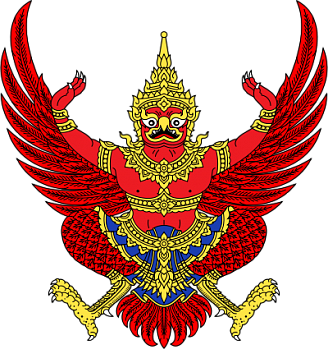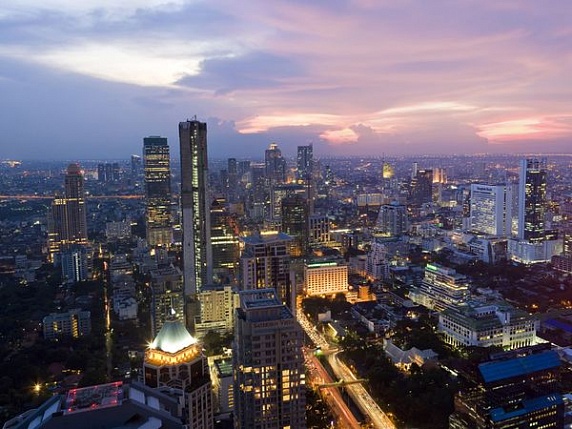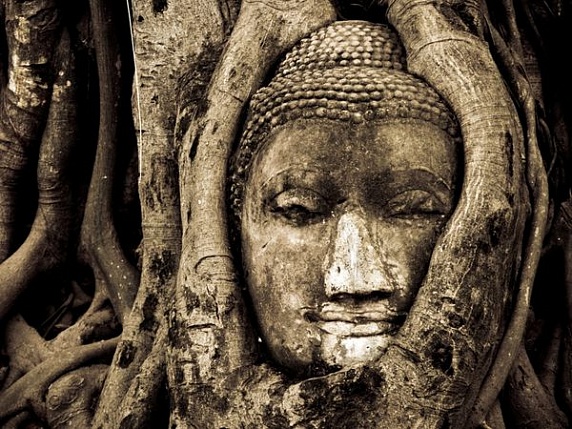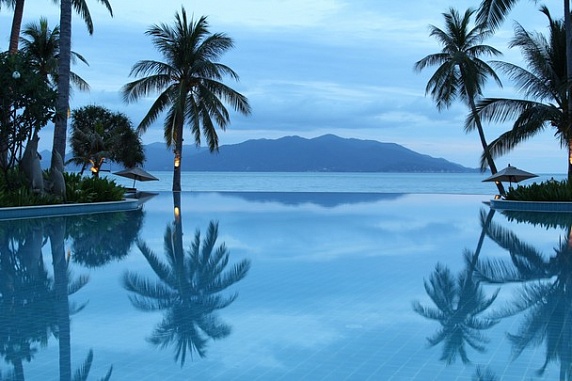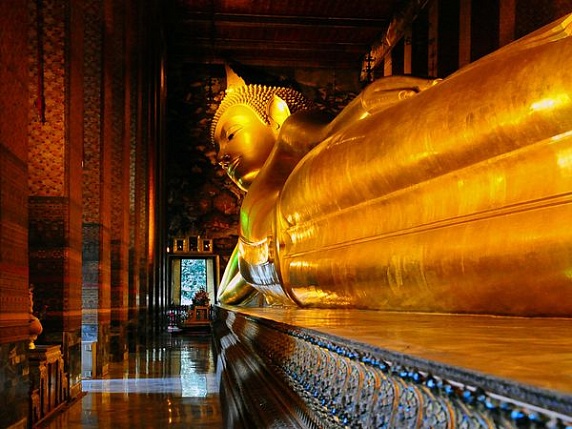 das Königreich Thailand
das Königreich Thailand
Foreign Minister Sergey Lavrov’s interview with RT Moscow, June 29, 2020
Question: We will be talking about the Foreign Ministry’s role in bringing Russian citizens back to Russia. How did this happen? The Constitution says that the state must guarantee citizens’ rights, including outside Russia. But is this being done in reality? Is this the Foreign Ministry’s responsibility? How deeply was it involved in this?
Sergey Lavrov: In principle, the responsibility of a country’s foreign ministry for the protection of the rights and safety of citizens outside the country, using all the available measures stipulated under international law for this purpose, is prescribed in the legislation of all countries. We are no exception in this sense. It is another matter that in many cases the mechanisms used in many countries to help bring citizens back home are not hard and fast.
Question: When did it become clear that we needed to evacuate our people and that there were very many of them?
Sergey Lavrov: The decision was taken by the Emergency Response Centre. It included representatives of the Foreign Ministry, the Ministry of Digital Development, Communications and Mass Media, which is responsible for the digital aspect of this operation, the Transport Ministry, the Federal Service for the Oversight of Consumer Protection and Welfare (Rospotrebnadzor), the Interior Ministry, which is responsible for migration matters, and the FSB, which covers border issues. The key decisions on tightening and subsequently on easing restrictions on movement have been made based on the opinions and assessments of Rospotrebnadzor, the Communications Ministry and the Response Centre chaired by Tatyana Golikova, who is also responsible for healthcare.
Question: When did you learn that you would have to bring, let’s say, 250,000 people back to Russia?
Sergey Lavrov: Tour groups have been evacuated quite quickly. The biggest problem has concerned the other holiday makers, and not only them. Many people went abroad for various reasons. But tourists constituted the majority, of course.
Question: What is the difference between tour groups and other tourists?
Sergey Lavrov: There are no restrictions on travelling abroad. But people travelling with tour groups have return tickets and the travel companies’ obligations towards them.
Question: That is, they are on a package tour?
Sergey Lavrov: Other tourists can travel without a return ticket because they are not sure how long they will stay abroad. Believe me, there are a lot of them. In addition to those spending their holidays abroad, there is a very large group of citizens who have gone abroad to study or for lengthy medical treatment, as well as those who reside abroad permanently but have decided that their living conditions in the United States, in particular in New York, have deteriorated because of the coronavirus infection. And they decided that it would be better to return to Russia for the time being and registered for a flight back on the Government Services Portal. We organise the implementation of decisions taken by the Crisis Response Centre based on the assessment of, first of all, the epidemiological situation, in particular, the collection of information, notification and the gathering of people for a flight back home.
Question: But that is all it takes – collection of information notification and boarding. What more could be needed?
Sergey Lavrov: First of all, you need a plane. It was decided at the initial stage that we would bring up to 500 people per day back to Moscow and the Moscow Region and up to 200 people to the other regions. The majority of these people have returned, but there are at least 20,000 people we have not yet brought back, among other reasons, because they are living in places that are difficult for Russian airlines to access.
Question: Where exactly is that?
Sergey Lavrov: It could be Oceania or the islands, such as the Philippines, or Latin America, where many exotic places are located away from civilisation.
Question: In other words, you need to gather them together first?
Sergey Lavrov: Yes, we must establish the point of departure and also the entry point in Russia, from where the local authorities will guarantee their transportation to their home regions and ensure that these people stay in quarantine for the required period of time. It is a painstaking job. It has been assigned at the ministry to the Coordination Centre, which is working 24/7, the Crisis Management Centre (Department), all territorial departments depending on the given part of the world or country, as well as the Information and Press Department, of course, because it is always at the forefront.
Question: Why this department?
Sergey Lavrov: On the one hand, it is our mouthpiece and the place where anyone, including the citizens of other countries, can send their proposals, requests or demands. Anything is possible. Some people offer their approval, while others criticise us.
Question: So how is the work of this entire coordination group organised at the Foreign Ministry? Did it just emerge?
Sergey Lavrov: No, that was my directive. It was signed a while ago, in mid-March. The group is led by a deputy minister, and all the departments I mentioned are represented in it. The Ministry is also represented in the emergency response centre led by Deputy Prime Minister Tatyana Golikova, at the level of the deputy minister, and on the coordination group at the State Council led by Moscow Mayor Sergey Sobyanin.
Question: Did you actually expect so many people?
Sergey Lavrov: Frankly, I was not surprised. There could have been more. There was a bit of a mess with those people who, as I said, had long since moved permanently abroad and suddenly decided it was safer to return. And so all of them had to be added to the lists. Say, we evacuate 5,000, and the list extends by another 10,000.
Question: This is something I really cannot grasp. People have left, moved permanently, and they live permanently in the United States, and the Russian Foreign Ministry spends the Russian Federation’s money to bring them back here. Why?
Sergey Lavrov: This isn’t the Russian Federation’s money, not entirely. They do pay for their flights. However, Russia pays everyone a daily allowance of 2400 roubles per adult, everyone who signed up at the gosuslugi.ru government services website and meets the established criteria (there are several criteria to be met).
Well, they are people, and it is their decision, their lives, after all. We do not ask them for explanations. He or she has a right to return, they are Russian citizens.
Question: So we just don’t care?
Sergey Lavrov: We do. We certainly want to make people comfortable. Again, no matter what decisions they made earlier, if they believe it is in their interests to return home, who can say they can’t? I don’t think we can.
Question: So you mean to say we take responsibility for anyone who is formally a citizen of the Russian Federation?
Sergey Lavrov: There is only one way to be a Russian citizen – to have a Russian passport.
Question: Do we still consider them Russian even if they, for example, also have a US passport?
Sergey Lavrov: Russia looks after its own. This might sound too high-flown, but we really do not leave our people behind, and this is just the case. We’ve had some mess-ups. These things happen. When a lot of work is going on, one should expect a few blunders. I would say I was pleasantly surprised, but I wasn’t surprised, not really. I knew that for the most part our people are very responsive – but staff in some of the embassies have shown some special creativity.
In Nepal, we have already talked about this, the team led by the Ambassador (and they have huge grounds there, since Soviet times) set up a tent camp for backpackers stranded there (mountain hikers in the Himalayas), and anyone else who could not afford a hotel.
Question: Were they all just put in tents?
Sergey Lavrov: They lived in those tents, yes. Our diplomatic mission employees bought them food.
Question: Do you mean employees chipped in for their food?
Sergey Lavrov: Yes.
Question: Not government support?
Sergey Lavrov: Now, of course, this is being done on an organised basis, but they had to act on the spot. No one could even imagine the scale of this problem. We have never encountered repatriation in such large numbers.
We did have situations such as the tsunami in Thailand when everyone had to be evacuated fast. But that was one country (several resorts), one route. On the other hand, those same charter planes took Russian tourists to Thailand on their return flights. Some were running away, but others still ventured to the resorts because they had bookings.
Question: But that was nothing compared to today.
Sergey Lavrov: Of course. Thailand is one of many dozens of destinations we need to bring people from now. Several thousand Russian citizens are still in Thailand. Many of them decided not to tempt fate.
Question: You mean they decided to stay?
Sergey Lavrov: At least for the period of the pandemic, they prefer to wait out there.
Question: It really depends on whether a person can afford to stay abroad or not.
Sergey Lavrov: Of course.
Question: It is obvious that we live in a country where most people cannot afford it.
Sergey Lavrov: Of course. Most people buy an all-inclusive package tour, which is strictly limited to the duration and the services included in their package. Those are not too expensive, but for most people, it is quite a lot, and if they paid for that tour, staying for any extra period not covered by their booking is a serious problem. So I mean this help provided by the Russian government is a very important thing.
Question: What does the government, including the Foreign Ministry, think of people’s responsibility? Before deciding to go, buying their airline tickets, what were they thinking?
Sergey Lavrov: This is a purely moral category. As the Minister of Foreign Affairs, I am not in a position to evaluate this; I am just obliged to comply with the Constitution of the Russian Federation.
Question: The Constitution does not say you must repatriate citizens with your own money.
Sergey Lavrov: This is another moral category. As an individual, I can have my own ideas about how risky it was to travel in the second half of March to relax in the warmer climes while knowing from the media of the tentative scale of this pandemic. But I also respect the morals of those people who helped other people who ended up without a penny, not because the constitution says so, but simply because they are people.
We have mentioned several times that more than 60 Russian schoolchildren were stranded in the United States with no notice given to any Russian agency. There is some kind of a Russian NGO collaborating with some American educational agency for foreigners. So their Russian customers pay the agency; the children are flown to the US and placed with American families in various states where they go to small town colleges and schools. We had more than 60 students stranded there. Now, as far as I know, there are only six left. Many of those students were brought to New York with the help of our diplomats; in some cases they paid for their flights or railway travel.
Question: Are you saying Russian diplomats at the Embassy bought tickets with their own money?
Sergey Lavrov: Yes. And no one told them to do this, they had no orders.
Question: Why?
Sergey Lavrov: Because the problem had to be resolved. How else? Underage Russians found themselves in American host families when the pandemic began, and some of those American families just told their young guest – thank you very much, we provided accommodation while things were going well, but now the situation is different, so we will discontinue our cooperation with your programme.
I think it was not a question of ‘why.’ They were just sincerely eager to help. This is commendable and needs to be encouraged.
Question: Did you expect such personal involvement of our embassies and consular services?
Sergey Lavrov: I used to serve abroad. I know that there are different kinds of people. But a normal average diplomat, with their nerve endings still open and capable of feeling deeply for what is happening in the world, as a rule, is eager to help people who find themselves in a non-standard situation.
Of course, no one could have estimated the scale of this disaster, and it was impossible to proactively create agencies on a state scale, to foresee something like this. Now, of course, we will draw our own conclusions.
Question: What conclusions?
Sergey Lavrov: I don’t know yet. First of all, it will be about being prepared in case a similar pandemic recurs, especially since more specialists are talking about the possibility of a second wave. Here, our epidemiologists should take the lead of course, primarily as regards building appropriate medical institutions that can handle this infection. The number of hospitals that were already built (I mean permanent structures, not temporary ones), with proper equipment, with the necessary devices, sufficiently stocked with PPE – I am sure those will be kept. They will probably be re-profiled to treat other conditions between outbreaks, if there is a second wave. This is the main thing.
In the near future, probably, a decision will be made on how to proceed with the reopening of air, rail and motor traffic with the outside world. These decisions will certainly depend on the experience that we are all going through now.
Question: What will the Foreign Ministry be doing?
Sergey Lavrov: We, the Ministry of Foreign Affairs, will provide awareness on the epidemiological situations in various countries. The Ministry will supply this information to Russian agencies that professionally evaluate how safe they are. For example, Europe is now reopening, but not to Russia, the United States or Brazil, given the number of infections at this stage.
Question: Brazil, I can’t believe it. It is just monstrous.
Sergey Lavrov: Regarding daily cases in Russia...
Question: We now have 8,000 a day.
Sergey Lavrov: Even less than 8000, and they are on the decline. But the total number still amounts to hundreds of thousands. It is a lot. On the other hand, we have a lower mortality rate. In this regard, specialists should coordinate their estimation methods, because it is important to have unified statistics. Now the statistics are different for each country: some use completely liberal approaches (every fatal case gets recorded as one category), others divide the cases into groups by various CODs. Here I can’t be an expert. We will provide the Government of Russia with real-time information on how things are going abroad in terms of the epidemiological situation and in terms of how other countries open up to the outside world.
Question: When do you think the borders will reopen?
Sergey Lavrov: I do not know. We are gradually returning back to normal, leaving the period of videoconferencing behind; we have held more than fifteen, including large events such as videoconferences between the Ministers of Foreign Affairs of the CSTO, the CIS, the SCO, and Russia-ASEAN. I have already met in person with two of my colleagues – last week, the Minister of Foreign Affairs of Iran Mohammad Javad Zarif, and this week, Minister of Foreign Affairs of Venezuela Jorge Arreaza.
For the first time in three months, I even traveled abroad, to Serbia and Belarus. Both visits were planned for March.
Question: Do you know that everyone travels abroad now via Belarus? Turkey is open now: Belavia and Turkish Airways fly there.
Sergey Lavrov: We cannot prohibit people from taking advantage of this opportunity. Of course, on the other hand, caution and common sense must prevail when making decisions.
Question: Many big countries also brought their citizens back from hotspots. How was our way different, for example, from German or American efforts?
Sergey Lavrov: Nobody carried anyone for free anywhere. Everyone is either given a loan or a bill that, upon return, they will pay in the appropriate amount.
Russia integrated it with its existing capabilities to accommodate people in quarantine.
Question: You say that for over three months everyone has inhabited Zoom: the entire world started to communicate remotely. President of Russia Vladimir Putin has held meetings online. How much has this changed the operation of the state system, including the Foreign Ministry?
Sergey Lavrov: If such a pandemic had taken place at least ten years before, it would probably have been much harder for the Foreign Ministry to function. Today, it broke out after the Foreign Ministry and other federal and regional agencies had been largely introduced to advanced means of communications. It was not very difficult to begin working online. We have not had many difficulties.
Question: Did you feel funny during your meetings with the President? You used to go to the Kremlin for this…
Sergey Lavrov: It was strange that the meetings were not in person but on a screen. But this works quite effectively.
Of course, it is impossible to replace personal contacts, especially during talks with our foreign partners that are not held for appearances’ sake. There are visits (let’s call them “courtesy calls”), when one reads out how well everything is here, then the other reads out how well everything is there, and everyone agrees to stay in touch. I am exaggerating a bit, but there are easy visits when there is no aim to hold talks or address a problem at the very moment. When such problems are on the agenda of specific talks, they are difficult to address online. You have to see the other persons’ eyes, and not just on a screen but in person. There are things that are difficult to entrust even to the most secure video conferencing. This should be understandable.
I think that once everything calms down (I hope this happens soon), we will continue to use some elements of this work, especially when talking with our partners for whom travelling is difficult: for example, from South America. It is a long story for them: when planning their foreign trips, they have to link three, four or five countries so that they won’t spend 15-16 hours flying one-way.
Question: You yourself did not have the coronavirus?
Sergey Lavrov: God had mercy.
Question: Did many Foreign Ministry employees fall ill?
Sergey Lavrov: We have several dozen cases.
Question: At the Central Office?
Sergey Lavrov: And also in our regional departments in the key Russian regions with large foreign consulates. About three dozen, most of them mild but one fatal case.
Question: An elderly person?
Sergey Lavrov: 62 years old. His wife is a medical worker (this is no secret) who worked in an ambulance and probably was an asymptomatic carrier.
We strictly comply with all the recommendations of the Federal Service for the Oversight of Consumer Protection and Welfare and the Moscow Healthcare Department, including on remote work. About half of our employees have been working online from the very beginning, and still are.
Question: And you?
Sergey Lavrov: I have to come here and have a look… Like everyone else, I work from my office.
Question: So you have never worked remotely?
Sergey Lavrov: No. I am monitored, too. I do not come into contact with many people. We are checked regularly, several times a week. We have personal protective equipment for visitors. However, there are fewer now, because we try to solve everything by phone. Thank you for caring.
Video © Copyright RT 2020
